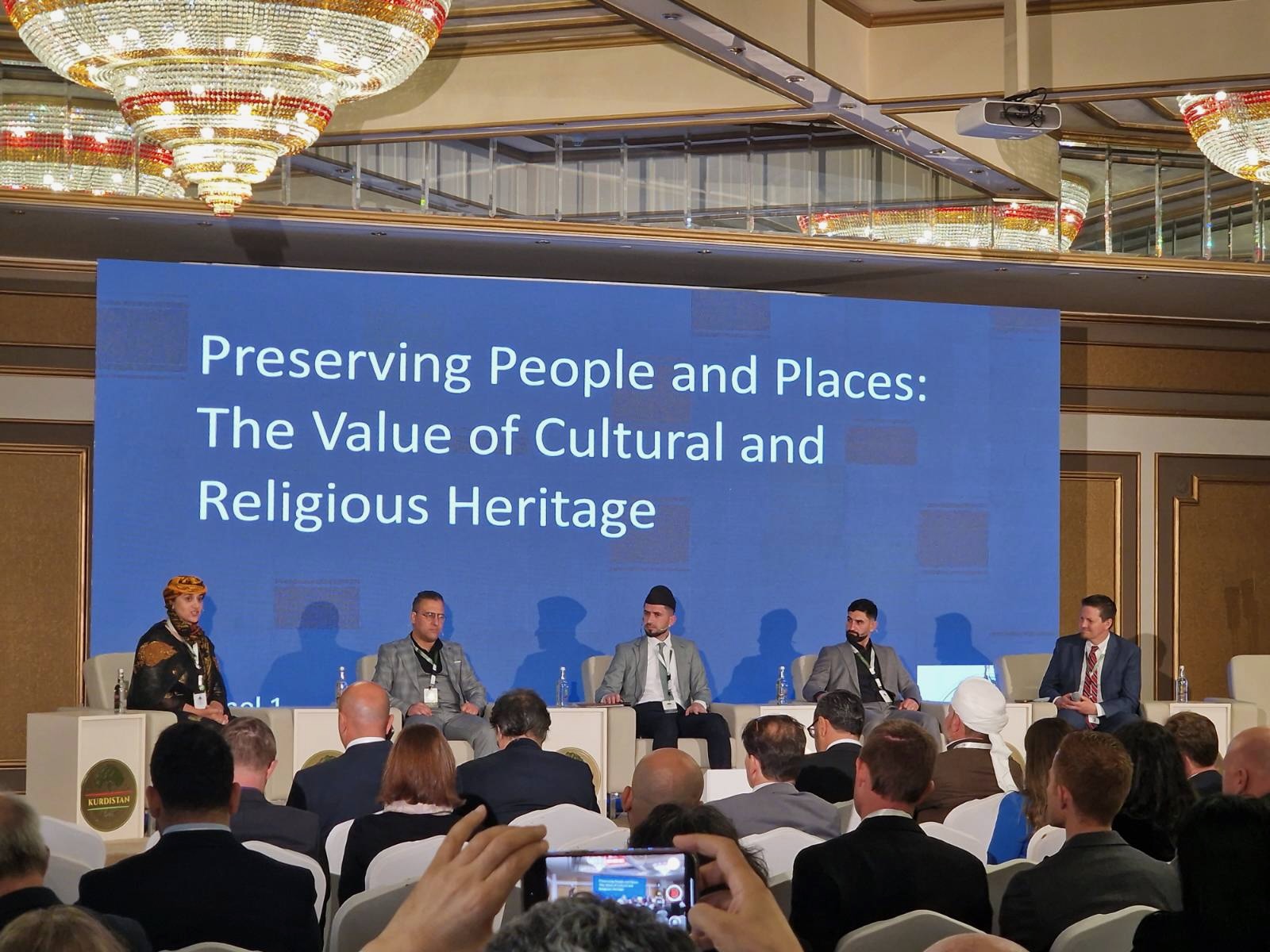
As a bastion for religious freedom, the United States receives its fair share of asylum applicants who flee persecution on account of religion. In contrast to totalitarian regimes, this country aspires to a different ideal: a system of justice which tolerates religious pluralism and eschews forced doctrinal conformity.
America’s tripartite government system is intended to guard against political tyranny. The judicial, legislative, and executive branches—in their best expressions—shield religious liberty from whimsical decisions that would undermine it. To that end, our First Amendment case law traces the fine line between protecting individual faith expression and precluding the state´s establishment of religion. As novel questions arise regarding religious liberty, the three branches seek to provide Americans a just answer. Yet within our aspiringly equitable context, religious asylum claims made by immigrants within the United States are nearing the end of what we cherish as procedural due process.
On June 10, 2020, the Department of Justice submitted a notice of proposed rulemaking, which would make comprehensive changes to the current asylum adjudication process. Following the comment period, which closed on July 15, immigrant lawyers and those they serve are bracing for the harsh realities that may transpire. Those seeking to distance themselves from death, violence, and torture on account of their religious affiliation may find the United States less equitable than they had dreamed as these recent regulations further erode the deteriorating state of due process.
In America’s immigration courts, the structural protections afforded by our three branches of government are already largely disintegrated beyond what citizens might expect in any state or federal court. Whether as a defendant or a respondent in America’s courtrooms, there are certain presuppositions that go without saying, and for good reason. We assume that the judge stands between the two sides as a neutral arbiter and not a party to the case. We surmise that executive branch officials cannot change a judicial branch´s ruling in favor of one of the parties.
Such assumptions are absent in America´s immigration courts. Imagine instead a trial where the judge and the prosecutor are both situated within the executive branch? Envision a judicial system where a favorable decision by the highest court in the land could be reversed by the President and returned for rubber-stamping? These are among the existing barriers to due process in immigration courts where judges and prosecutors are employed by the Executive Branch (the Departments of Justice and Homeland Security, respectively) and the President-appointed Attorney General can literally flip decisions made by the Board of Immigration Appeals.
Streamlined Asylum
It is this already flawed system that the proposed rules repeatedly purport to “streamline.” Rather than creating a platform where impartiality predominates, these changes seek to churn through asylum cases with Amazon-like efficiency.
Therefore, the new rules intend to reduce the ballooning backlog of cases in our immigration courts by truncating existing 2-4 hour trials into an astonishingly tighter window. They purport to limit hearings entirely unless factual issues are in dispute and would allow an immigration judge to pretermit applications upon the motion of the government or upon the judge´s own motion. Lest we forget, they work for the same boss. Time will be due on due process.
Advanced Application of Asylum Bars
Perhaps most concerningly for procedural due process, the growing “bars” to asylum (i.e., criteria that, if applicable, make a foreign-born person ineligible to apply for asylum in the U.S.) will now be applied at the border. For example, prohibitions against certain asylum claims include safe-third country agreements, a one-year filing deadline, and firm resettlement in a third country, among nearly a dozen others. However, these “bars” are not without their exceptions under the law and can be overcome through sufficient evidence. A Liberian woman I assisted had suffered unimaginable horrors, but firm resettlement in a third country was in dispute. We won on the issue and she won her freedom.
Nonetheless, her outcome would be different today as the timing and application of these bars are set to be advanced considerably by the proposed rules. Procedurally, immigrants who present themselves at a U.S. port of entry for asylum are provided a brief credible fear interview where a government officer evaluates whether an immigrant has a subjective fear of returning to their home country. Normally, attorneys are not allowed to attend to such interviews, nor are they necessary as the merits of the case are not decided. If they pass the initial interview, asylum-seekers are paroled and granted a hearing before an immigration judge where they can collect and present evidence and seek the assistance of counsel, if they can afford one.
In contrast, the new regulations will permit officers at the border to deny even those fleeing religious persecution if they believe that one or more of the asylum bars are applicable. Not a judge. Not a lawyer. A government official. Thus, at a credible fear interview, the judge and prosecutor will no longer have the same boss; the prosecutor and the judge will now become the same person. There will not even exist what semblance of due process remained in the immigration court. At the border, an immigrant is defenseless to check the imbalances of governmental decisions. How much suffering at the hands of religious totalitarians will be faced by people who are eligible under, but unversed in, the law?
Convention Against Torture Claims
Sadly, the proposed rules will return religious asylees to their persecutors, even in situations where the officer knows it is more likely than not that they would be tortured if removed. When immigrants are otherwise ineligible for asylum due to some element of inadmissibility, they have only Convention Against Torture (CAT) claims as their last lifeline. Human rights laws under CAT have been enacted in 170 countries, including the United States, to protect applicants from removal to their persecutors where there is a 51% probability that they will be tortured upon return.
If the proposed rule is promulgated in its current form, one sweeping change will be that the government will overlook any persecution suffered at the hands of government actors for CAT claims, unless the persecutor carried out his acts in his official capacity. Whereas our government will continue to grant asylum claims if a government actor is unable or unwilling to control the actual persecutor, CAT claims will only be approved if the persecution was carried out by a government actor under color of law. Therefore, a Libyan Christian who has experienced brutal torture by off-duty government officials on account of her conversion could easily be returned because these injustices were carried out while not in uniform.
These stark injustices should shock our consciences on behalf of those seeking religious freedom. As a country that champions liberty for those wanting to practice their faith
free from threat of death or violence, we cannot continue to erect further, insurmountable barriers to asylum. Whereas our immigration courts already pale in comparison to the courts that protect our religious liberties, these new rules will create a judicial system devoid of anything resembling due process under our Constitution.
Scott Andrew Fulks is an Immigration Attorney at Deckert & Van Loh, P.A. in Maple Grove, Minnesota. He works with businesses, families, and individuals on a variety of immigration matters.
All views and opinions presented in this essay are solely those of the author and publication on Cornerstone Forum does not represent an endorsement or agreement from the Religious Freedom Institute or its leadership.
THE RFI BLOG

Largest Longitudinal Study of Human Flourishing Ever Shows Religion’s Importance

Keys To Human Flourishing: Faith And Relationships Outweigh Wealth

RFI Champions Religious Freedom at Kurdistan’s First National Prayer Breakfast

RFI’s Ismail Royer Speaks at Supreme Court Rally for Religious Parents Seeking Opt-Out

Addressing the Precarious Religious Freedom in Iraq
CORNERSTONE FORUM

Reaffirming Religious Freedom: Bridging U.S. Advocacy and Iraq’s Constitutional Framework

Political Polarization, Same-Sex Marriage and Religious Liberty

Bridging the Gap Between International Efforts and Local Realities: Advancing Religious Freedom in the MENA Region

Challenges to Religious Freedom in Iraq and the Critical Need for Action

